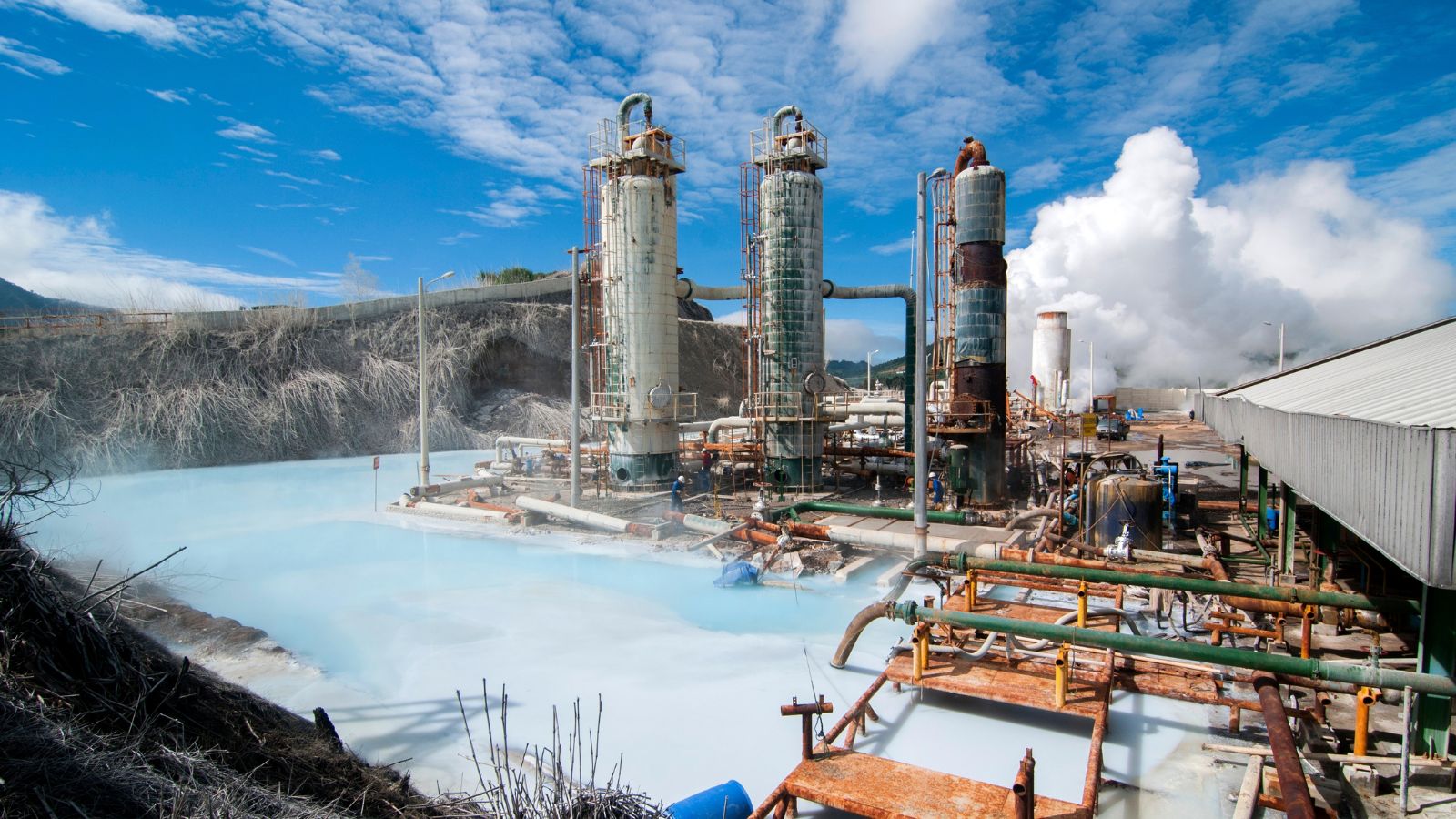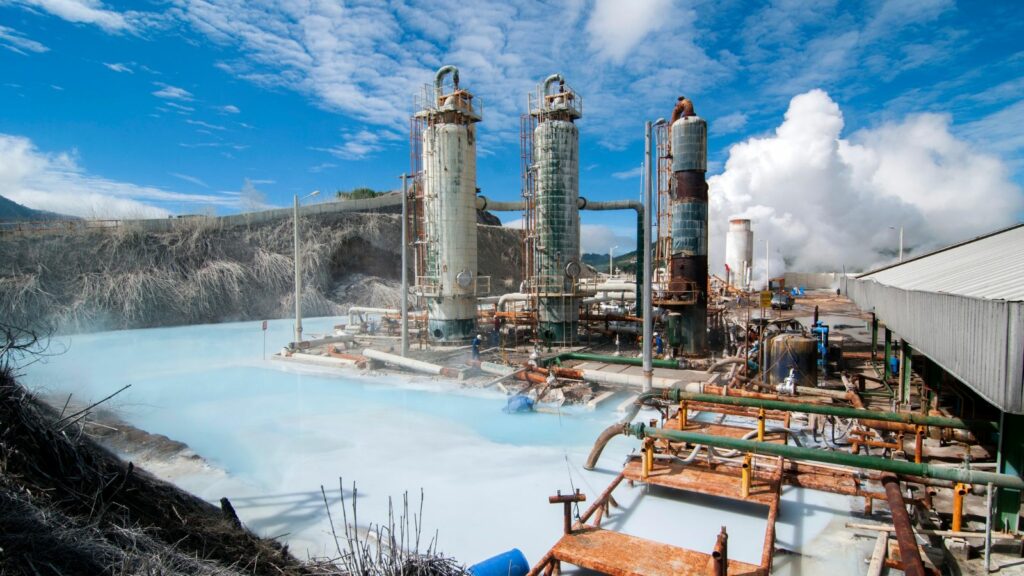Canada and the United States share one of the closest and most complex international relationships in the world. While cooperation and trade have long been hallmarks of their partnership, this proximity also carries a risk of overdependence and economic vulnerability. From energy and agriculture to media and technology, Canada must carefully guard certain sectors to maintain its sovereignty, cultural identity, and long-term resilience. These are the 23 Crucial Industries Canada Must Protect From the U.S.
Energy Sector (Oil, Gas, and Renewables)

Canada is a global energy powerhouse, boasting vast reserves of oil, natural gas, and an increasingly important renewable energy infrastructure. However, much of the infrastructure and investment in Canadian energy is deeply tied to U.S. interests, raising concerns about strategic control and national autonomy. Protecting this sector ensures Canada can make independent decisions about environmental policy, pricing, and exports. Canadian energy security must be a top priority in a world shifting toward green energy and geopolitical instability.
Telecommunications Infrastructure

Telecommunications is the backbone of a modern economy, and Canadian control over its infrastructure is essential. American companies, while dominant globally, pose a risk to data sovereignty and national security if given too much influence in Canada. Ensuring Canadian ownership and regulation of wireless networks, internet infrastructure, and satellite communication helps protect sensitive information and democratic processes. This industry also supports thousands of domestic jobs and fosters homegrown innovation.
Banking and Financial Services

Canada’s banking system is among the most stable in the world, thanks to robust regulations and prudent oversight. Allowing U.S. financial giants to dominate or erode Canadian control could expose the system to more speculative, risk-laden behaviors common in the American market. Maintaining independence in this sector ensures Canadians’ savings and investments are protected by national priorities and standards. Moreover, Canadian banks play a crucial role in supporting small businesses and local economic development.
Media and Cultural Industries

Canada’s cultural identity is distinct and multifaceted, often overshadowed by the massive influence of American media. Without protections, Canadian film, television, publishing, and music industries could be overwhelmed, leading to a cultural homogenization. Broadcasting regulations and funding support for Canadian content are essential to ensure that Canadian voices and stories remain prominent.
Technology and Innovation

The tech sector is one of the fastest-growing parts of the global economy, and Canada has emerged as a hub for artificial intelligence, clean tech, and quantum computing. However, American tech giants often acquire promising Canadian startups, moving jobs and intellectual property south of the border. Protecting this industry involves enforcing stronger antitrust policies and encouraging Canadian venture capital. Keeping innovation in Canada ensures long-term economic growth and technological leadership.
Agriculture and Food Security

Canadian farmers produce a wide variety of food products essential to national health and trade. American agribusinesses, if allowed unchecked access, could monopolize food supply chains, manipulate pricing, and reduce diversity in crop production. Supporting local agriculture and maintaining control over seed patents, land use, and food processing infrastructure helps protect Canadian food security. A self-reliant food system is crucial in the face of climate change and global supply chain disruptions.
Forestry and Natural Resources

Canada’s forests are not only a valuable export commodity but also vital to the environment and Indigenous communities. The softwood lumber dispute illustrates the risks of U.S. interference in this industry. Protecting Canadian control ensures sustainable harvesting practices, equitable revenue distribution, and long-term environmental stewardship. It also reinforces Indigenous sovereignty and supports thousands of jobs in rural communities.
Pharmaceutical and Healthcare Manufacturing

The COVID-19 pandemic underscored the importance of having domestic capacity to produce vaccines, medications, and medical equipment. Relying on American pharmaceutical companies can lead to shortages and delayed access in times of crisis. Investing in Canadian research, development, and manufacturing in the health sector is essential for public health security. National control ensures Canadians are not deprioritized in emergencies or price-gouged by foreign interests.
Transportation and Logistics

From rail lines to shipping routes and air transport hubs, Canada’s transportation sector is critical for national unity and trade. U.S. companies often seek control of key logistical assets to gain influence over Canadian supply chains. Maintaining sovereignty in this industry ensures goods flow based on national priorities, not foreign profit motives. Control over transportation also supports northern and remote communities that depend on reliable infrastructure.
Water Resources

Canada holds one of the world’s largest reserves of fresh water, making it a strategic resource in the 21st century. There is growing pressure, especially from water-scarce U.S. regions, to allow water exports across the border. Protecting Canadian water from bulk exports and corporate exploitation is a matter of environmental and national security. Future conflicts could revolve around water, making it essential that Canada safeguard its supplies now.
Fisheries and Ocean Resources

Canada’s vast maritime zones are rich with fish stocks and other marine resources. U.S. interests have historically clashed with Canadian conservation goals, particularly around shared waters. Enforcing strong domestic regulation and investing in sustainable practices ensures long-term health of the oceans. This industry is vital for food security, rural employment, and biodiversity protection.
Education and Research Institutions

Canada’s universities and research centers drive innovation and attract global talent. However, U.S. influence through funding, partnerships, or acquisitions can lead to a brain drain or manipulation of research agendas. Maintaining academic independence and increasing domestic investment ensures Canadian priorities guide educational development. Protecting intellectual freedom and talent retention is essential for national competitiveness.
Defense and Aerospace

While Canada collaborates closely with the U.S. on defense through NORAD and NATO, it must retain control over its defense procurement and research. American defense contractors may dominate contracts, influencing military priorities and supply chains. Supporting a Canadian defense industry ensures autonomy in strategic planning and technological development. It also builds resilience in the face of global conflicts or alliance shifts.
Cybersecurity and Data Protection

Data is the new oil, and protecting it is vital to national security. American tech firms handle enormous volumes of Canadian data, raising concerns about surveillance, misuse, and cyberattacks. Strengthening Canadian cybersecurity infrastructure and enforcing data residency laws helps protect individual privacy and national interests. Cyber sovereignty must be a foundational policy goal in an increasingly digital world.
Retail and E-Commerce

Large U.S. retailers and online platforms have transformed consumer habits in Canada, often pushing out local businesses. Protecting Canadian retail means supporting small enterprises, regulating market dominance, and ensuring fair tax treatment for e-commerce giants. A vibrant local marketplace fosters community resilience and economic diversity. Ensuring Canadians have access to Canadian-made goods is vital to economic self-sufficiency.
Mining and Rare Earth Elements

Canada is rich in minerals critical for batteries, electronics, and clean energy technologies. U.S. firms are eager to gain access to these strategic materials to reduce dependence on China. Canada must manage its mining rights carefully, prioritizing environmental sustainability and national ownership. Control over these resources ensures long-term leverage in global markets.
Insurance and Pensions

Canadian pension plans and insurance companies manage trillions of dollars in assets. Allowing U.S. firms to encroach on this sector risks subjecting Canadians’ futures to volatile financial markets and foreign interests. Maintaining robust domestic regulation protects retirement savings and ensures these funds are invested in national development. Pensions are not just personal assets, they are public trust vehicles.
Construction and Infrastructure Development

As Canada invests in major infrastructure, from transit systems to energy grids, it must be cautious about foreign contractors and investors dominating these projects. U.S. influence could lead to cost overruns, dependency on foreign technology, or even weakened labor standards. Prioritizing Canadian firms ensures the country builds with its own long-term interests in mind. Infrastructure is a key driver of economic equity and regional development.
Legal and Regulatory Systems

American legal frameworks, particularly those embedded in trade agreements or investor-state dispute settlements, can threaten Canadian sovereignty. Upholding distinct Canadian legal traditions and regulatory autonomy ensures that decisions reflect national values. This includes environmental protections, labor rights, and consumer safeguards. A strong legal identity is critical for maintaining national independence.
Environmental Protection Services

Environmental services, such as conservation programs and waste management, are increasingly under pressure from privatization and cross-border interests. Protecting these services ensures Canadian ecosystems are preserved based on domestic priorities, not foreign profit motives. National stewardship supports climate goals and intergenerational equity. A healthy environment is a strategic asset, not just a public good.
Indigenous Industries and Sovereignty

Indigenous communities across Canada are developing vibrant economies rooted in traditional knowledge and modern innovation. U.S. corporate interests can undermine these efforts if protections aren’t in place. Supporting Indigenous-led industries strengthens reconciliation, sovereignty, and economic self-determination. These communities must be full partners in any national protection strategy.
Tourism and Heritage Sites

Canada’s unique landscapes and cultural heritage sites draw millions of tourists annually. U.S.-owned travel companies and foreign developers can shift tourism focus away from sustainability and local benefit. Protecting this industry involves supporting domestic operators and preserving cultural landmarks. Tourism should be an expression of national pride, not a foreign profit center.
Digital Platforms and Social Media

Social media and digital platforms shape public discourse and influence elections. U.S. tech companies dominate this space, often operating beyond the reach of Canadian laws. Promoting Canadian alternatives and enforcing content regulation helps safeguard democratic values and media literacy. Digital sovereignty is essential in the age of algorithmic influence.
21 Products Canadians Should Stockpile Before Tariffs Hit

If trade tensions escalate between Canada and the U.S., everyday essentials can suddenly disappear or skyrocket in price. Products like pantry basics and tech must-haves that depend on are deeply tied to cross-border supply chains and are likely to face various kinds of disruptions
21 Products Canadians Should Stockpile Before Tariffs Hit
